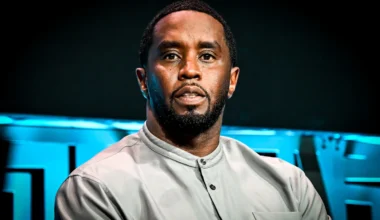By 1972, British rock had reached mythic proportions. The Rolling Stones dropped Exile on Main St., a chaotic masterpiece that closed out their golden era, while The Who stormed stages behind Who’s Next, a record that transformed powerpop into arena-filling spectacle. But somewhere between the swagger of the Stones and the muscle of The Who stood Led Zeppelin—untouchable, elemental, and in full flight.
Fresh off the back of their untitled fourth album and with Houses of the Holy just over the horizon, Zeppelin embarked on a short but explosive eight-date North American tour that summer. It was in California—at Long Beach and the Los Angeles Forum—where the band cemented their legend. The recordings from those two nights, captured through direct soundboard feeds, would remain locked away for decades, slowly turning into holy relics among fans.
Bootlegs like Burn Like a Candle gave listeners a taste, but it wasn’t until 2003 that the full power of these shows would be unleashed. How the West Was Won, a triple live album assembled by Jimmy Page, delivered the ultimate Zeppelin live experience. It wasn’t a simple dump of audio. Page spent painstaking hours mixing and stitching together the best takes from both nights, even borrowing a Mellotron snippet from a 1973 Southampton show to perfect “Stairway to Heaven.”
“I think what we did on How the West Was Won—that 1972 gig—is pretty much a testament of how good it was,” Page said. “It would have been nice to have had a little more visual recordings, but there you go. That’s the conundrum of Led Zeppelin!”
Indeed, Zeppelin’s myth has always thrived in shadows. They didn’t chase cameras or Top of the Pops appearances. Their album covers avoided portraits, their presence on television was scarce. Yet that mystique only added to the gravity of a release like How the West Was Won—a rare document of what the band was truly capable of when the tape was rolling and the amps were glowing red-hot.
Kevin Shirley, the engineer behind the release, made it clear: “It wasn’t in our thoughts to try and outdo The Song Remains the Same. The reason those performances still stand up now is because Jimmy really was a genius. He could create tempests, summon storms. He really was the master of light and shade.”
But it wasn’t just Page. It was Bonham’s thunder, Jones’ melodic anchoring, and Plant’s wailing presence that gave Page the canvas to paint those sonic storms. “Without Bonham,” Shirley added, “Jimmy and Zeppelin would never have been able to do what he did.”
The band would reunite once more in 2007 for their celebrated Celebration Day concert at London’s O2 Arena, proving they could still ignite the stage. But for many, How the West Was Won remains the definitive proof of Zeppelin’s power in their prime—a blazing snapshot of the gods of rock in full command





